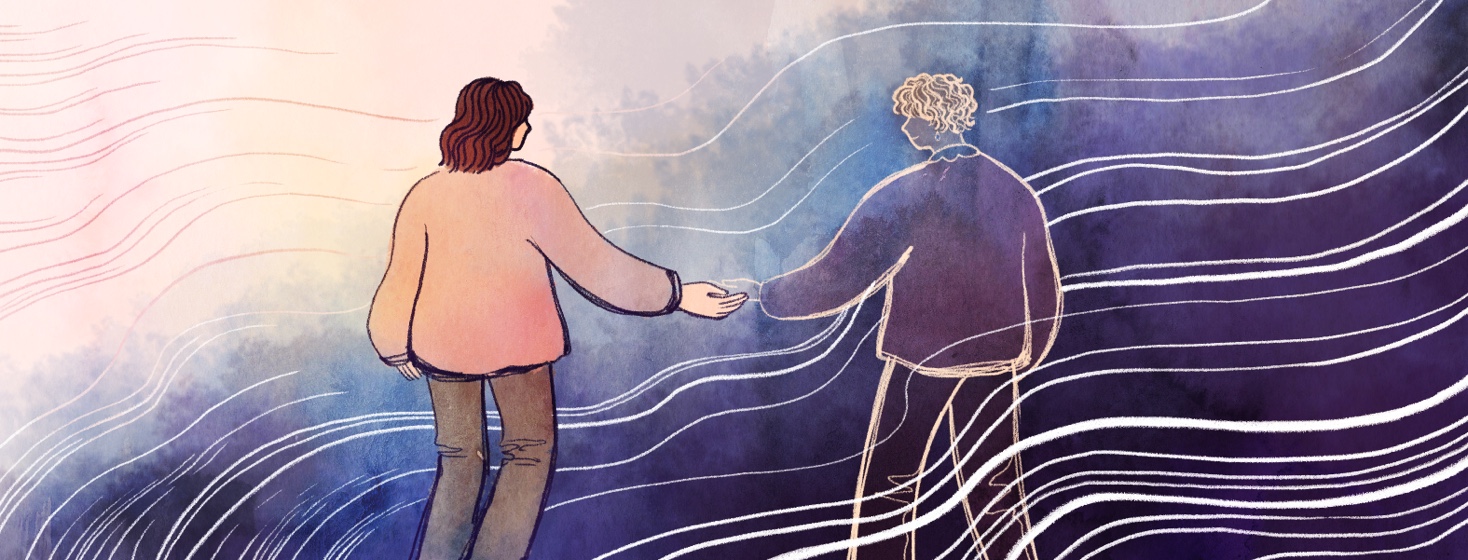Surviving Survivor's Guilt (Part One)
Not too long ago, I read an article about people who live with a chronic illness. In this article, it spoke about how people who are chronically ill juggle a lot of feelings about their illness. They often have friends who share the same illness. On top of that, the two friends often bond over the fact that this person “gets it.”
The side effects of having an illness can take a toll on someone's mental health. But having someone who truly knows about life with an illness helps to ease that stress.
One thing that I noticed in the writing was the topic of survivor’s guilt in the chronic illness circle. For many years, I thought survivor’s guilt was not a part of living with a chronic illness. When I read that article, I was proven wrong. People who have a chronic illness are not guarded from the grief that survivor’s guilt can bring.
Learning about survivor's guilt can feel overwhelming. But learning about it can help equip people to cope with the challenges it brings.
In this article, I will talk about what survivor's guilt is and about its symptoms. After that, there will be a Part Two follow-up that talks about ways to cope with survivor's guilt.
What is survivor’s guilt?
Survivor’s guilt occurs when someone has feelings of guilt about living through a dangerous event when other people did not.1 For example, living through a fatal car crash or living with an illness when others have died. Another example is living through a natural disaster such as a hurricane or tornado.
All of those instances can cause survivor's guilt. These feelings of guilt can occur days, weeks, months, or years after an unsafe event. In addition, survivor’s guilt can vary from person to person.
Symptoms of survivor’s guilt can be both psychological and physical. It can also seriously impact someone’s daily life. For example, having survivor's guilt can affect someone's self-care.
What are symptoms of survivor’s guilt?
Living with survivor’s guilt will not look the same for each person. Even if two people lived through the same event, they will not react in the same way.
For instance, some people who have survivor’s guilt can have nausea or headaches.1 Additionally, someone else may have trouble sleeping.1
To clarify, I will share below some of the more common symptoms of survivor’s guilt.2,3
- Having flashbacks of the near-death event. A flashback is when someone recalls an unsafe event, but they feel like it is happening in real time. For example, if you recall an event from years ago, it may make you feel like you are there again. In other words, it will not feel like a memory.
- Feeling irritable or snappy. Being irritable is a feeling of agitation or unrest. When someone is irritable they are easily annoyed or angered. For instance, if you feel irritable you are more likely to become upset over something that does not bother you most of the time.4
- Having a hard time sleeping. That is to say, if someone is having trouble sleeping it could mean they may have trouble falling asleep or staying asleep.
- Feeling trapped, numb, or detached. To clarify, this may look like not being able to connect with other people emotionally. Detachment, or not connecting with other people, provides a way for someone to protect themselves from unwanted stress.5 For example, if you are feeling detached, you might be having a hard time being loving toward a family member or friend.
- Being unmotivated. When someone isn't feeling motivated, they often don’t have any desire to do things they want to do or need to do.
- Feeling helpless. Being helpless can sometimes mean you cannot take care of yourself. For example, feeling helpless may look like not being able to make a healthy lunch. Additionally, feeling helpless could make you feel like you are hurt.
- Having an intense feeling of fear. An intense feeling of fear can sometimes cause a panic attack. Panic attacks can look like a lot things such as chest pain, hot flashes, or dizziness.6
- Getting physical symptoms such as headaches and stomachaches.
- Having suicidal thoughts. Suicidal thoughts refer to thinking about or planning suicide. They can range from a fleeting thought to making a detailed plan.7 (If you are having suicidal thoughts there is help available. Call the National Suicide Prevention Lifeline at 800-273-8255.
- Mood swings and angry outbursts. A mood swing is a rapid change in someone’s mood.8
No two people will have the exact same symptoms if they are feeling survivor's guilt. Survivor's guilt is a normal reaction to a loss,2 but not everyone will share the same emotions. It can be hard to know why someone is having survivor's guilt. But it is important to know what survivor's guilt is as well as know the signs and symptoms.
Join me again for Part Two of “Surviving Survivor’s Guilt” where I will share some ways to cope with survivor’s guilt.

Join the conversation